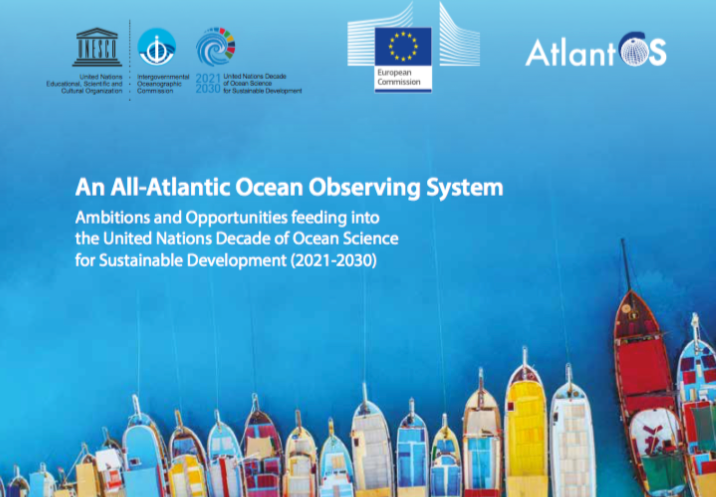This week, March 25th through 28th, 2019 the first international AtlantOS Symposium is taking place in Paris. It is a high-level symposium that celebrates the success of the Horizon 2020 (H2020) EU Research and Innovation Action AtlantOS, and simultaneously marks the beginning of the international AtlantOS (Atlantic Ocean Observing System) as the All-Atlantic part of the Global Ocean Observing System (GOOS).
The symposium brings together scientists, policymakers, users, funders and other stakeholders to articulate and refine the joint Atlantic ambition for ocean observing. It will provide input to the G7-Ocean group, the international OceanObs’19 Conference and feed into the UN Decade of Ocean Science for Sustainable Development (2021-2030).
Mercator Ocean International has participated through conducting impact studies to evaluate the benefit of the AtlantOS in situ observation networks and their impact on the Copernicus Marine Service global model, produced at Mercator Ocean. The outcomes of these impact studies will guide the in situ observing system evolution requirements for operational oceanography. Pierre-Yves Le Traon (Scientific Director), Florent Gasparin (oceanographer) and Elisabeth Rémy (oceanographer) of Mercator Ocean have been heavily involved in the H2020 AtlantOS project and will present the results and outcomes of the tasks led by Mercator Ocean (T1.3 and T7.4).
The objective of the H2020 AtlantOS project, which has now concluded, was to achieve a transition from a loosely-coordinated set of existing in situ ocean observing activities (producing fragmented, often monodisciplinary data) to a sustainable, efficient, and fit for-purpose integrated Atlantic Ocean Observing System. This has been achieved through research and innovation activities focused on: defining requirements and system design, improving the readiness of observing networks and data systems, engaging stakeholders around the Atlantic, as well as strengthening Europe’s contribution to GOOS, a major component of the Group on Earth Observations (GEO), its Global Earth Observation System of Systems (GEOSS), and specifically on its emerging “Oceans and Society: Blue Planet” initiative.
The H2020 AtlantOS Project deliverables are freely accessible here.
Several scientific articles (see below) have been published by Mercator Ocean scientists. This reflects the strong effort made to evaluate elements of the AtlantOS in situ network to constrain the global analysis and forecast model.
Scientific publications involving Mercator Ocean’s scientists and related to this project:
Gasparin, F., Greiner, E., Lellouche, J.-M., Legalloudec, O., Garric, G., Drillet, Y., Bourdalle-Badie, R., Le Traon, P.-Y., Remy,E., and Drevillon, M. (2018): A large-scale view of oceanic variability from 2007 to 2015 in the global high resolution monitoring and forecasting system at Mercator-Ocean, J. Marine Syst., 187, 260–276, https://doi.org/10.1016/j.jmarsys.2018.06.015.
Gasparin F, Guinehut S, Mao C, Mirouze I, Rémy E, King R., Hamon M, Reid R, Storto A, Le Traon P.Y, Martin M.J. and Masina S (2019). Requirements for an integrated in situ Atlantic ocean observing system from coordinated observing system simulation experiments. Frontiers in Marine Science, 6:83. doi: 10.3389/fmars.2019.00083.
Le Traon P.Y., et al. (2019). From observation to information and users: the Copernicus Marine Service perspective. Frontiers in Marine Science (in press).
Gasparin F., Hamon, M., Remy, E., and P.Y. Le Traon: How deep Argo will improve the deep ocean in ocean reanalyses, submitted to Journal of Climate, 2019.

